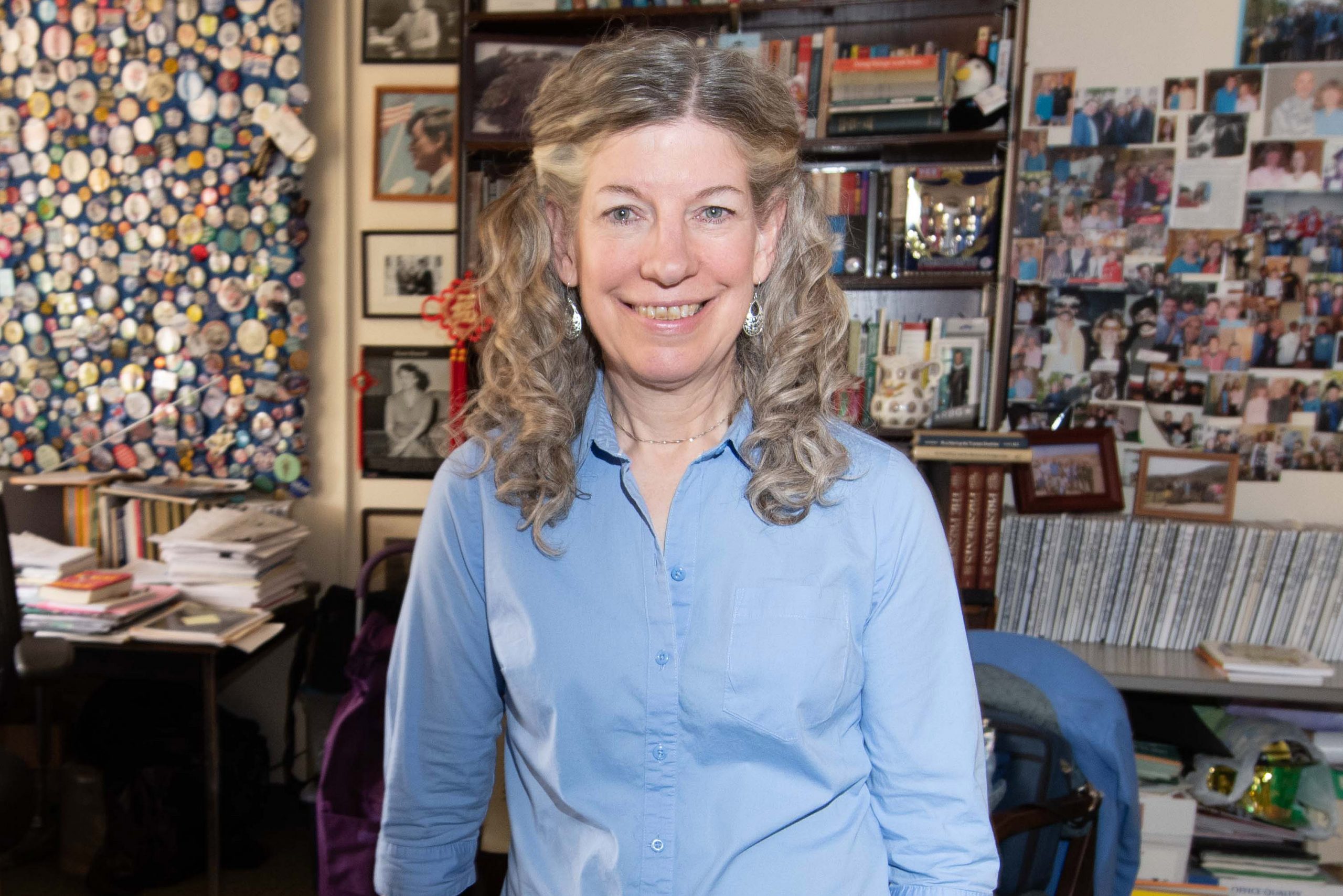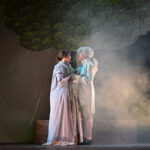
Bostdorff a Featured Speaker at Dole Institute of Politics’ Presidential Lecture Series

WOOSTER, Ohio – Denise Bostdorff, a leading expert on political rhetoric and a professor of communication studies at The College of Wooster, was a featured speaker recently at the Robert J. Dole Institute of Politics, located at the University of Kansas. On Feb. 25, she gave the fourth and final presentation of the Dole Institute’s esteemed 2020 Presidential Lecture Series.
Bostdorff discussed key moments in the development of presidential rhetoric over the last several decades and the role of presidential rhetoric in shaping American politics – topics that she has thoroughly researched as a faculty member at Wooster since 1994. She also put focus on the drastic changes in presidential rhetoric associated with the rise of social media and the presidency of Donald Trump.
During the presentation, Bostdorff explained presidents have strategically increased their practice of ceremonial speaking, which she defined in part as “praising values the audience already believes in,” over the years. She noted that “most presidents have chosen to use ceremonies as a time to reflect and to encourage listeners to gain a new perspective,” with one example being President Kennedy’s American University address in which he tried to humanize the Soviets, and often times these speeches offer assurance, such as President Reagan after the Space Shuttle Challenger disaster, President Clinton following the Oklahoma City bombing, and President Obama with multiple mass shootings.
Bostdorff’s examination of social media’s impact on contemporary presidential rhetoric included a comparison between the two most recent holders of the Oval Office. While a lot of attention has been paid to President Trump’s Twitter use, she said it was “Obama who moved the presidency into the social media age with the first White House Twitter account and the first White House Facebook page, but he carried out this communication largely through a professional communication team. In contrast, Trump uses Twitter himself without the assistance of staff oversight to communicate directly with his supporters while also gaining media attention.” Bostdorff pointed to research indicating the reading level of President Trump’s public messages (fourth grade) is the lowest of the past 15 presidents, and added “his short sentences, simple phrasing, which are well suited to Twitter and tend to oversimplify issues” may also help him reach a broader audience than past presidents.
Also during her visit to the Kansas City area, Bostdorff was interviewed by KBIA, a local NPR affiliate. She was asked about similar topics, such as how the rise of mass media has changed a president’s ability to communicate and how presidents have adapted to communication innovations.
The comprehensive interview is available to listen to here.
Bostdorff is the author of two books, Proclaiming the Truman Doctrine: The Cold War Call to Arms, which won the Bruce E. Gronbeck Award for Political Communication Research in 2010, and The Presidency and the Rhetoric of Foreign Crisis, as well as numerous essays on presidential rhetoric about race, foreign policy, political campaigns, and war in various outlets. Her expertise on rhetoric has even extended to areas outside politics, including NBA superstar LeBron James.
The Dole Institute, which honors the longtime U.S. Senator from Kansas (1969-96), presents a series of programs focusing on a particular aspect of U.S. political leadership each spring semester. The events feature nationally-known individuals, including public servants, historians, top strategists, award-winning journalists, and political operatives, with this year’s series focusing on presidential speeches and rhetoric, from the greatest speeches to the process of speechwriting to changes in presidential rhetoric in the age of social media.
Posted in Faculty, News on March 12, 2020.
Related Posts
Related Areas of Study
Communication Studies
Be an effective listener, writer, and speaker who can think critically and connect with audiences
Major Minor

